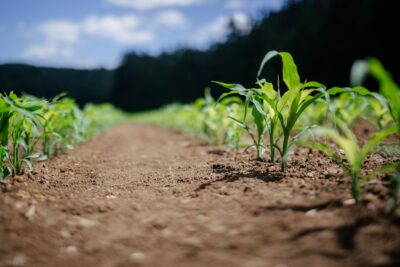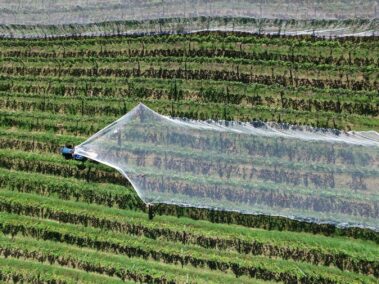Blockchain in Agriculture
In the realm of modern agriculture, ensuring the organic integrity certifications and tracing the origin of food products are paramount concerns. Blockchain technology has emerged as a revolutionary solution to address these challenges, offering transparency, traceability, and trust throughout the supply chain. In Saudi Arabia and the UAE, where agriculture plays a significant role in the economy, the adoption of blockchain holds immense potential to enhance consumer confidence, mitigate fraud, and uphold the integrity of organic farming practices.
Blockchain technology operates on a decentralized ledger system, where transactions are recorded in a secure and immutable manner. In the context of agriculture, this means that every step of the production process, from planting to harvesting to distribution, can be digitally documented and verified. Smart contracts, a key feature of blockchain technology, enable automatic execution of agreements when predetermined conditions are met, streamlining processes such as payment and certification. By leveraging blockchain, farmers can provide consumers with unprecedented visibility into the journey of their food, empowering them to make informed choices about the products they purchase.
Furthermore, blockchain has the potential to revolutionize the certification process for organic products. Traditionally, organic certifications have been susceptible to fraud and misrepresentation, undermining consumer trust in the authenticity of organic labels. With blockchain, each stage of the organic certification process can be securely recorded on the blockchain, ensuring that organic claims are backed by verifiable data. This not only protects consumers from fraudulent practices but also rewards farmers who adhere to organic standards by providing them with a competitive advantage in the market. By embracing blockchain technology in agriculture, Saudi Arabia and the UAE can lead the way in promoting transparency, sustainability, and trust in the food industry.
The Power of Transparency
One of the most significant benefits of blockchain technology in agriculture is its ability to provide transparency across the entire supply chain. In traditional agricultural systems, information about the origin, production methods, and handling practices of food products is often opaque, leaving consumers in the dark about the true nature of the food they consume. Blockchain technology changes this paradigm by creating a transparent and immutable record of every transaction and interaction within the supply chain. This transparency not only builds trust between producers and consumers but also enables stakeholders to identify and address issues such as food fraud, contamination, and unethical labor practices.
Empowering Farmers and Consumers
Blockchain technology empowers both farmers and consumers by giving them greater control over the food supply chain. For farmers, blockchain offers a means to showcase their commitment to sustainable and ethical farming practices, providing them with a competitive edge in the market. By verifying the authenticity of organic certifications and tracing the origin of their products, farmers can differentiate themselves from competitors and attract conscious consumers who prioritize transparency and sustainability. On the other hand, consumers benefit from access to reliable information about the food they purchase, enabling them to make informed decisions that align with their values and preferences. Ultimately, blockchain technology in agriculture serves as a catalyst for positive change, fostering greater transparency, trust, and sustainability throughout the food system.
The Impact on Food Safety
Food safety is a paramount concern for consumers, regulators, and stakeholders in the agriculture industry. Blockchain technology has the potential to revolutionize food safety protocols by providing real-time visibility into the entire supply chain. In the event of a foodborne illness outbreak or contamination incident, blockchain allows for swift and accurate traceback of affected products, minimizing the scope of the problem and preventing further spread. By enabling rapid identification of the source of contamination, blockchain can save lives, protect public health, and safeguard the reputation of agricultural producers.
#Blockchain #Agriculture #OrganicCertifications #FoodOrigin #SupplyChain #Transparency #Sustainability #Trust
























